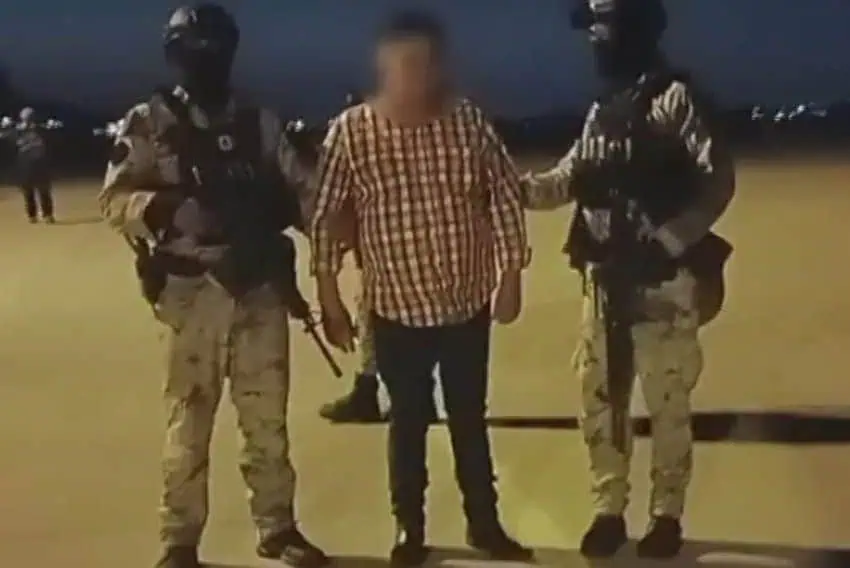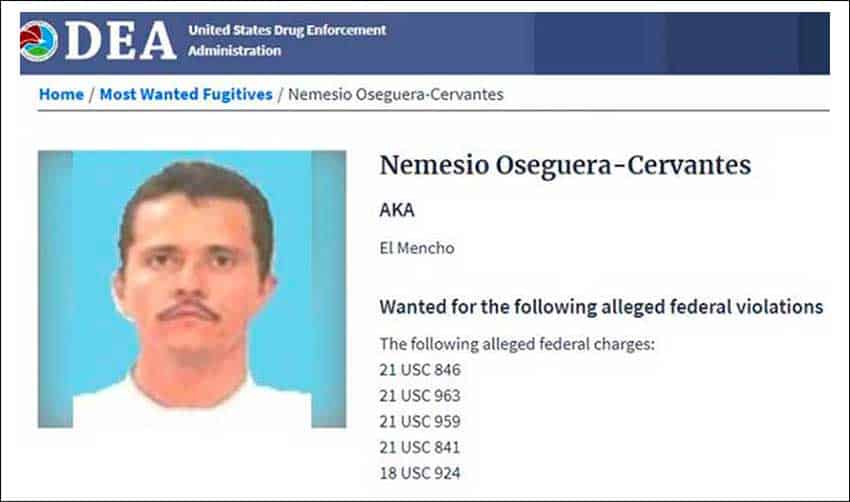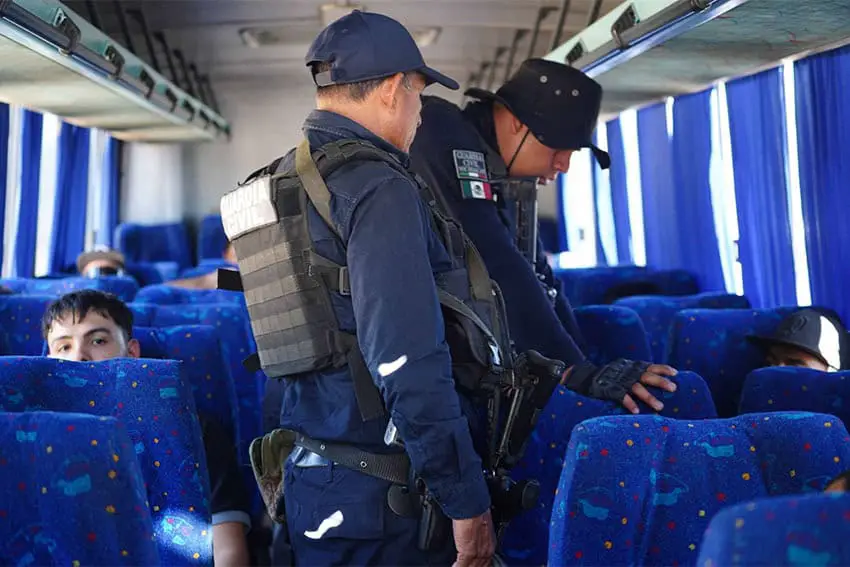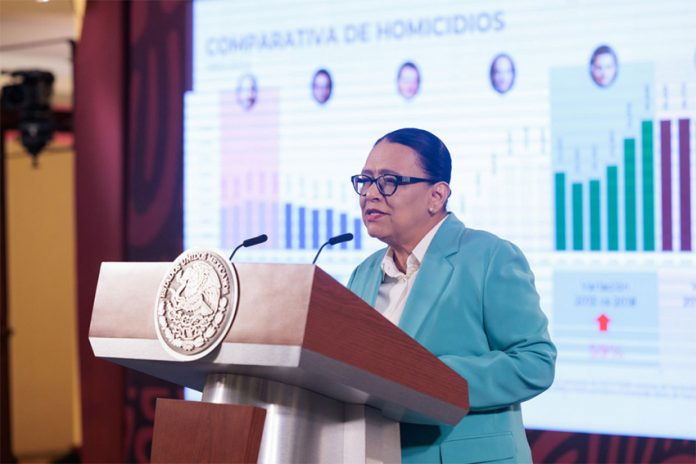Despite protests from the federal Security Ministry and President Andrés Manuel López Obrador, Abraham Oseguera Cervantes, brother of Jalisco New Generation Cartel (CJNG) leader Nemesio “El Mencho” Oseguera Cervantes, was released from prison early Tuesday after a judge ruled that there was insufficient evidence to put him on trial.
Oseguera, known as “Don Rodo,” was detained by the National Guard (GN) in the municipality of Autlán de Navarro, Jalisco, on April 21. The Ministry of National Defense (Sedena) said they confiscated illegal drugs and two firearms when he was arrested.

Oseguera — who Sedena said was “considered one of the main coordinators of logistical and financial operations” for the CJNG — was set to face drug trafficking and weapon possession charges.
However, at a marathon hearing last weekend that extended into the early hours of Sunday, Judge Rogelio Díaz Villarreal ordered the 70-year-old’s release from the Altiplano maximum security prison in México state after determining that “the manner of [his] arrest was contradictory to what was stated by the authority in its police report.”
The police report said that GN officers arrested Oseguera after entering a property in pursuit of three armed men. Videos presented at the hearing, however, didn’t show any armed men outside the property in question.
What they did show, according to a report by the newspaper Reforma, “was a group of five federal agents who arrived in advance with a battering ram to break the locks of the door.”
“The agents illegally entered the property without a search warrant, and a short time later, a helicopter arrived to transfer the detainee [to Mexico City],” Reforma added.
“… A key element was that the dactyloscopy [fingerprinting] report presented in the hearing concludes that Don Rodo’s fingerprints were not on the two firearms seized from him,” the newspaper said.

The judge concluded that authorities lied about Oseguera’s arrest. He also remarked that it is illegal to remove a person from their home without a warrant.
The FGR could not produce evidence from any separate investigation that would have allowed it to press other charges against Don Rodo and keep him in prison, Reforma said.
There have been numerous previous cases in Mexico in which judges have released suspects after determining that their arrests didn’t occur in the way authorities said they did.
Federal authorities respond to the judge’s ruling and Oseguera’s release
The FGR said in a statement on Monday that GN officers were legally “obliged” to pursue the three armed men as they saw them committing “a clearly flagrant criminal act.”
It also said that municipal police officers in Autlán presented a criminal complaint against the GN officers who arrested Oseguera — “demonstrating … the collusion and complicity of local police authorities [with criminals].”
“That complicit conduct … was ratified when said police officers were presented as witnesses by the defense for the accused,” the FGR said.
The federal Attorney General’s Office asserted that the “series of fragmented videos” presented by lawyers at the hearing last weekend lacked “chronological sequence” and had no “technical documentation to give them credibility and certainty.”
“… The judge ordered the release of … [Oseguera] based on these very questionable and insufficient videos, while the same judge … failed to place value on the accusations of serious crimes already presented against Abraham “O,” the FGR said, adding that it would appeal the decision.
Security Minister Rosa Icela Rodríguez said Tuesday that the government appealed to the Supreme Court. However, Mexico’s top court did not overturn the judge’s decision to release Oseguera.
Rodríguez also railed against the ruling to release Oseguera, saying that Judge Díaz “gave full validity to the defense’s evidence,” which she described as “edited videos … in which it is presumed there was a manipulation.”

The security minister said that the government asked United States authorities for information about legal processes or complaints against Oseguera in the U.S. but was informed that there was nothing “outstanding” against him.
“He was therefore released during the night according to the terms ordered by the judge,” Rodríguez said. “This is a state matter that could seriously affect the prestige of Mexico’s institutions,” she added.
President López Obrador — a frequent critic of Mexico’s judiciary — made similar remarks on Monday.
Oseguera left prison in the early hours of Tuesday and disappeared into the night in a private vehicle.
Don Rodo and El Mencho were arrested on heroin trafficking charges in California in the early 1990s, but the latter has never been detained in Mexico. In his late 50s, El Mencho is at the helm of a criminal organization that operates all over Mexico and in many countries around the world.
U.S. authorities are offering a reward of up to US $10 million for information leading to his arrest.
With reports from Reforma, El País, El Financiero and El Economista
